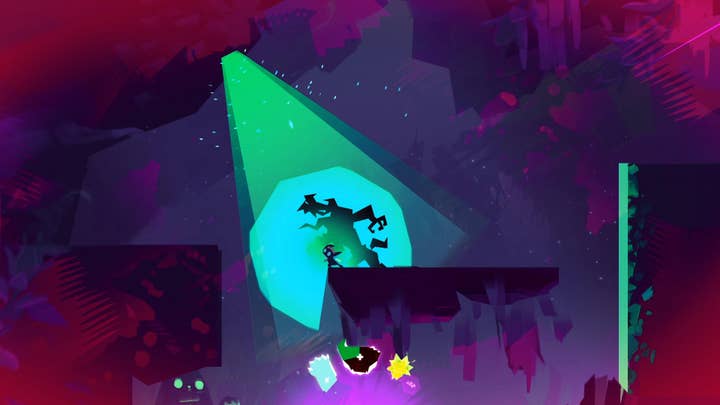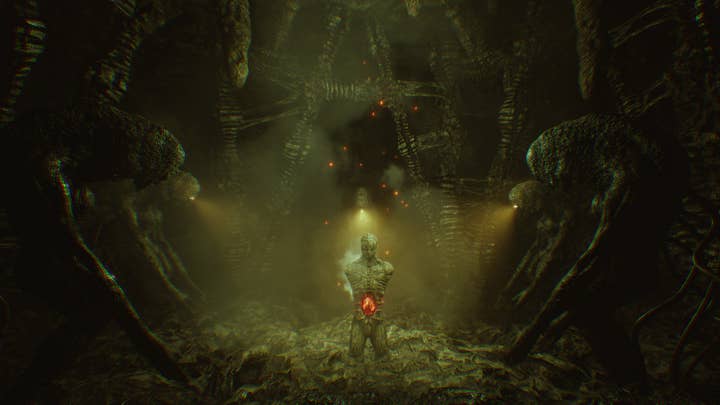"What Disney Land is for families, we can be for horror"
Feardemic CEO Scott Millard talks about the indie publisher's tunnel vision on horror games and ambitions for the future
GamesIndustry.biz has interviewed a lot of indie publishers over the years, so much so that the interview often boils down to a search for the thing that is supposed to separate the interviewed publisher from the litany of competitors in the space.
This interview is a bit different, because we already knew what made Feardemic stand out when we took the pitch. As the name suggests, Feardemic is an indie publisher that only publishes horror games.
"The more you dig into the idea of horror as a narrative and not a game mechanic, you realize it's quite a big part of not only the gaming industry but the entertainment business"
"Initially you think about it and go, 'Hang on, that's a bit stupid. You're limiting yourself quite severely,'" admits Feardemic CEO Scott Millard. "But the more you dig into the idea of horror as a narrative and not a game mechanic, you realize it's quite a big part of not only the gaming industry but the entertainment business."
The focus is perhaps less surprising when one learns that Feardemic is a subsidiary of Bloober Team, the horror developer behind The Medium and Layers of Fear. Millard also says the horror focus the publisher inherited from its parent company is perhaps not as restrictive as one would assume at first glance, because it is often a thematic choice applied to a variety of genres.
The Medium might be classified as an adventure game, while Feardemic titles like Cathedral 3-D and Perseverance are clearly a first-person shooter and a visual novel, respectively, but all fit comfortably under the horror umbrella.
In fact, he cites research from data agencies have found 18% of all games have a narrative style that would be consistent with horror.
"And when we say 'horror,' we're not stuck in psychological horror or adult-oriented horror," Millard says. "It's horror of all different intensities."

He says upcoming Feardemic titles like the 2D platformer Cosmic: A Journey Among Shadows or Bloody Hell Hotel would be low-intensity horror games intended for a wide audience.
"They could even possibly be played by kids and they would still get enjoyment from them," he says. "But they still have an overall horror narrative consistent with something like Monster High or the Addams Family."

On the other end of the spectrum, there's something like Dark Fracture, a "high-intensity" first-person horror game with clear intent to unsettle its players.
"There's a huge scope for us over the next decade for us to build a catalog that has games targeted towards children all the way through to games targeted to adults only, but all of them fall within the vertical horror," Millard says.
He argues it's a more efficient approach than you would see taken by a more generalist publisher.
"Every time you have a game, whether it's a racing game, fighting game or adventure game, you're starting from scratch with your marketing and where you're going to find your audience," Millard says. "The idea of a single-vertical publisher is we know where the audience is. We spend all our time trying to find that audience, and then on the other side, we are able to feed a game to that audience. We complete the circle, if you like. "
While Millard can't point to perfect analogs of this theme-specific strategy in the world of games, he says there are some parallels to what Paradox Interactive has done by committing itself to strategy games.
"They've been able to focus simply on one genre and be very good at that genre, and their customer or community base understands what they do and what they publish, so they've always got a willing community there," Millard says.

Perhaps a closer analog would be found in the music business, where independent record labels have long built their businesses by focusing on a specific style of music. Considering Feardemic's focus and target audience, Millard suggests heavy metal publisher might be a good point of comparison.
"The audience is much more active than the audience you would market a game like FIFA to," he says. "The horror audience is much more engaged, much more interested and likely to be interested in another type of horror game as opposed to just buying one game per year."
While Millard says Feardemic has been able to convert some interest around its biggest title -- Darq, a self-published PC hit that it published on consoles and in physical form -- to its other projects like Dark Fracture, he acknowledges the publisher has a lot of brand-building to do. One part of that will be launching a Feardemic YouTube channel to produces and streams general horror content in addition to promotional material for its own games, hoping the former can funnel an audience to the latter.
"We want to build that community around Feardemic as a stand-alone brand so that in ten years, we will have a community that understands what we do, understands the type of product we bring to market, and that the developers who work with us will understand we have that community and we can match the two together," Millard says. "It's obviously easier said than done and we've got a long way to go, but we're getting there."
While Feardemic is starting out with a scattering of small-scale projects topping out at what Millard describes as a "AA" effort like Dark Fracture, he isn't afraid to voice the company's larger ambitions.
"We really want to grow into a sizable publisher," Millard says. "I think we can be one of the biggest single-vertical publishers in the world in the next decade. What Disney Land is for families, we can be for horror. But we can do that without sacrificing smaller, edgier projects. We don't want to be like Activision where we start out doing lots of games and then end up doing one."








